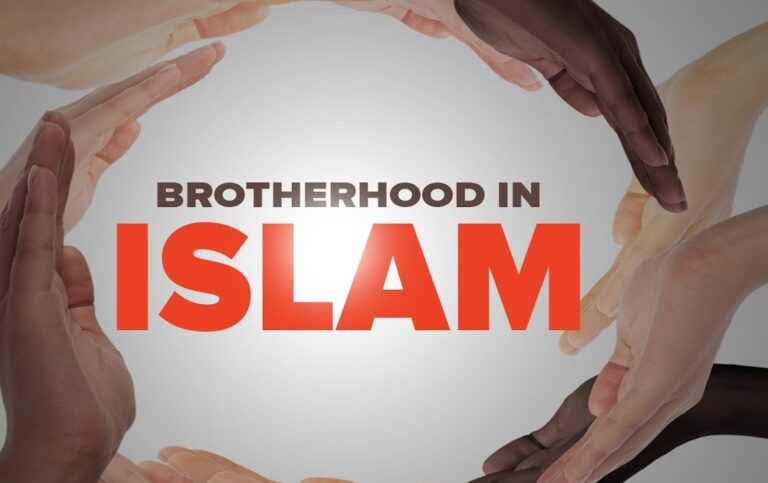Nameemah in Islam (malicious gossip) you must know
Nameemah means to spread things about people in order to make them hate each other.
Nameemah in Islam: Meaning, Consequences, and Punishment
This article will look at nameemah and its consequences
What is Nameemah in Islam? is Gossiping sin?
- The word nameemah means to say things about people so that others will hate them. Nameemah refers to the act of spreading information—true or false—with the intent to cause enmity between people. It’s an act of division and destruction, often driven by jealousy or the desire to stir conflict.
Let’s simplify with an example: Three friends—Bilaal, Hasan, and Daawood. Bilaal tells Hasan that Daawood spoke badly of him. Then, he goes to Daawood and tells him that Hasan insulted him. This results in both becoming angry at each other. Bilaal has just performed nameemah, and by doing so, he’s earned the title of a nammaam (for men) or nammaamah (for women).
This example shows how Bilaal has done nameemah between two people.
He is called a nammaam and a woman doing nameemah is called a nammaamah. Nameemah can be saying something which is the truth or spreading lies.
It can involve two people or more.
It can be done by speaking, writing, imitating or in any other way that can cause people to hate each other. Nameemah is going around with the intention of causing people to hate each other by revealing secrets. If what is said is a lie, then it is worse than the nameemah which contains the truth.
Forms of Nameemah
Nameemah doesn’t require lies to be harmful. It can be:
- Speaking truth with malicious intent
- Spreading outright falsehoods
- Written messages or texts
- Gestures or mimicry that incite hatred
This toxic act can be executed with words, texts, symbols, or any medium capable of transmitting harmful content between people.
Nameemah in Hadith: Serious Warnings
Islam treats nameemah as a grave sin. Its punishment is explicitly mentioned in various authentic Hadith.
The Messenger of Allah ﷺ told the Companions that the nammaam and nammaamah will be punished in Hell: Hudhayfah narrated that the Prophet ﷺ said
“A nammaam will not enter Paradise.” (Al-Bukhaari and Muslim)
لا يدخل الجنة نمام
This hadeeth means that a Muslim person who commits nameemah will be punished in Hell first before being allowed to enter Paradise.
Punishment in the Grave for Nameemah
To further emphasize the sin of nameemah, the Prophet ﷺ described how the person who spreads nameemah will be punished in the grave. ‘Abdullaah ibn ‘Abbaas narrated the following hadeeth:
Once the Prophet ﷺ , while passing through one of the graveyards of Al-Madeenah or Makkah, heard the voices of two people who were being punished in their graves.
The Prophet ﷺ said, “These two persons are being punished not for a major sin (to avoid).” The Prophet ﷺ then added, “Yes! (they are being punished for a major sin). Indeed, one of them never saved himself from being soiled with his urine while the other used to do nameemah.” (Reported in Al-Bukhaari)
عن ابن عباس قَالَ : ” مَرَّ النَّبِيُّ ﷺ بحائط من حيطان المدينةِ أَوْ مَكَةَ فَسَمِعَ صَوْتَ إنسانين يُعَذِّبَانِ في قبورهما، فَقَالَ النَّبِيُّ ﷺ يُعَذِّبَانِ ومَا يُعَذِّبَانِ فِي كَبِيرَ ثُم قَالَ بَلَى كانَ أَحَدُهُمَا لَا يَسْتَتِرُ مِنْ بَولِهِ وَكَانَ الآخَرُ يمشي بالنميمة .. (رواه البخاری)
Consequences of Nameemah on the Ummah
- Breaks family ties
- Destroys friendships
- Spreads distrust in communities
- Weakens Islamic brotherhood
- Invites Allah’s wrath and punishment
Muslims are advised to fear Allah, refrain from gossip, and uphold truth and sincerity in speech.
Nameemah is something that is haraam in Islam as it causes the Muslims to become disunited. The people who do it should think about what they are doing and why. They should fear the punishment of Allah and this can be done by remembering the many aayaat and ahaadeeth that refer to the punishment of nameemah. They should also think of the negative effects that nameemah has on the community.
How to Avoid Falling Into Nameemah
- Think before speaking: Will this build or break relationships?
- Avoid passing private info: Respect others’ words as confidential.
- Don’t fuel conflicts: Refuse to be a middleman of hate.
- Educate others: Remind friends and family of the sin.
- Reflect on the punishment: Fear Allah’s justice and mercy.
What We Learn: Key Takeaways
| Lessons | Description |
|---|---|
| Definition | Nameemah is spreading info to divide people |
| Ruling | Clearly Haraam in Islam |
| Consequences | Punishment in the grave, Hell before Jannah |
| Prophetic Warnings | Strong Hadith from Bukhari & Muslim |
| Impact | Divides Muslim communities and families |
What we learn from the lesson:
- Nameemah means to spread things about people in order to make them hate each other.
- Nameemah is haraam.
- Allah has described the punishment of those who spread nameemah.
- A nammaam/nammaamah will be punished in the grave.
❓ Frequently Asked Questions (FAQ)
What is the punishment of a nammaam?
They will be punished in the grave and denied entry into Paradise unless forgiven.
Is nameemah worse than gheebah (backbiting)?
Both are serious sins, but nameemah involves an intent to create conflict, making its impact greater.
Q5: How can I repent from nameemah?
Sincerely repent to Allah, make amends with those you hurt, and commit to never repeating the sin.
Can nameemah be done without words?
Yes. It can be done through writing, gestures, or even facial expressions.
Is nameemah always a lie?
No. Even true statements used to cause division are considered nameemah.
Relavant Topics:
What is nameemah
Gossip in Islam
Nammaam and nammaamah
Malicious speech in Islam
Sins of the tongue
Backbiting vs nameemah
Spreading rumors in Islam
Grave punishment in Islam
Disunity among Muslims
Avoid gossip in Islam







